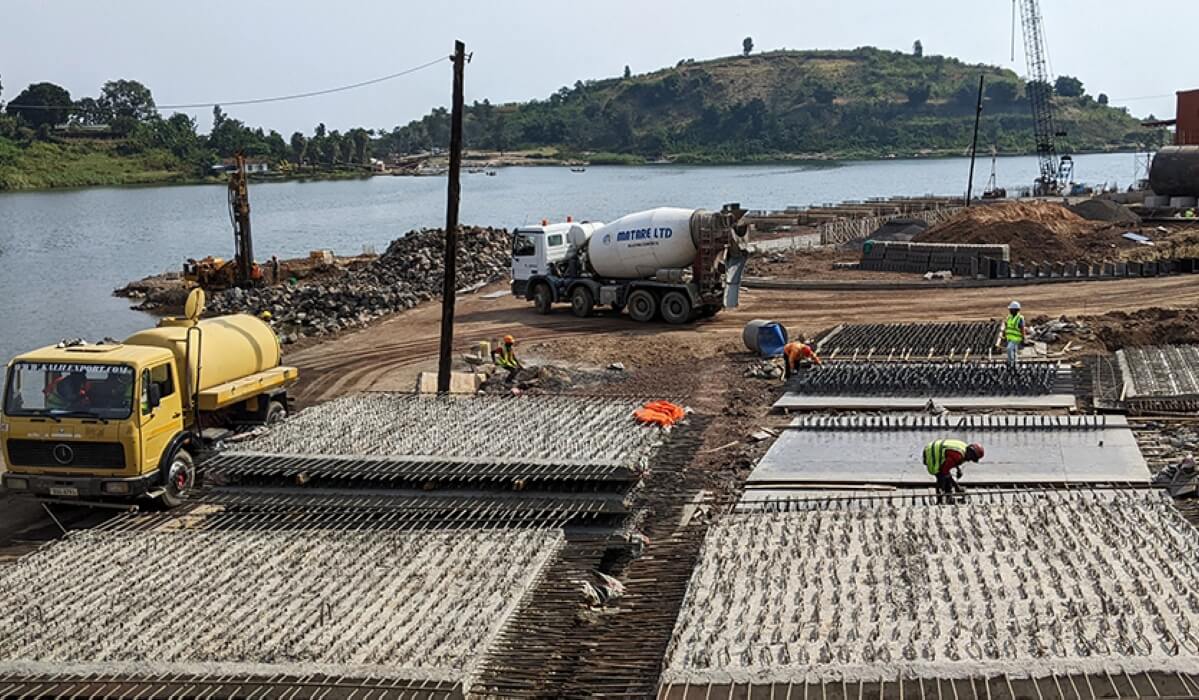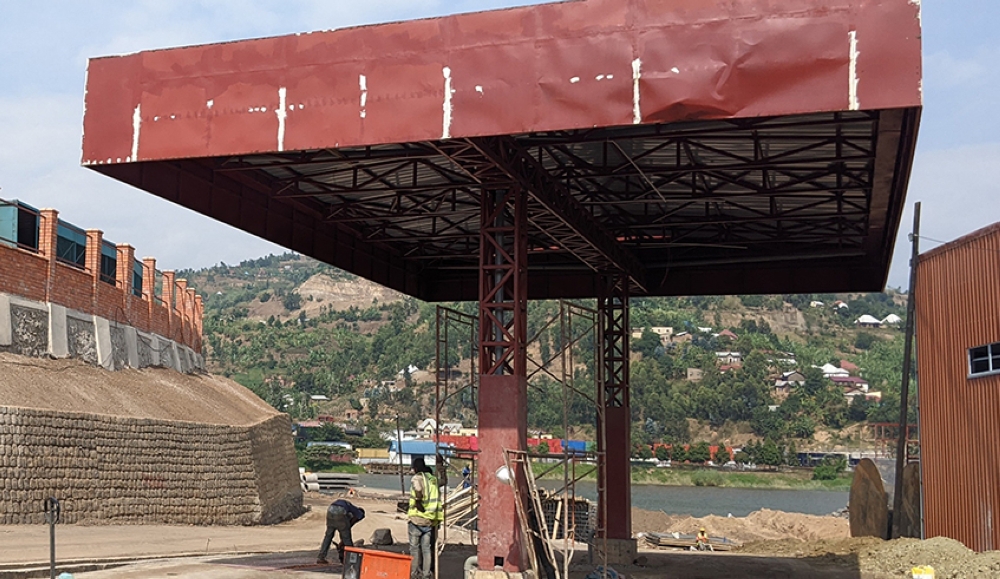
Our Projects are
Transforming African Trade
Quick Contacts
2nd Floor, Fidelity Insurance Centre Waiyaki Way, Westlands

Construction of the Rubavu port, which is anticipated to enhance tourism and facilitate cross-border trade between Rwanda and DR Congo, is making progress. With works underway, the port, covering two hectares, is located in Rubavu District’s Nyamyumba Sector along the shores of Lake Kivu.
According to the Senior Engineer at Railway and Cable Car Transport at Rwanda Transport Development Agency (RTDA), Jean Népo Ndayambaje, the development of the port will open up Western Province for tourism and trade.
“It will increase connectivity between districts along the Lake Kivu shores as well as boost cross-border trade between Rwanda and DR Congo. It is anticipated that the port will reduce costs of existing trade flow along Lake Kivu,” Ndayambaje noted.
The innovative facility is currently under construction and will be completed in two phases. It is comprised of two main sections: a cargo terminal and a passenger terminal.
The cargo section meant for trade purposes has accommodation building for staff, a petrol station, waste water treatment plant, store and quay; whereas the passenger terminal has maintenance, an electrical substation, workshop, a-two-level building for a restaurant and the main offices of the port and security check.

The New Times recently toured the port, accompanied by Mohamed Salah Allani, a structural engineer from Société centrale pour l’équipement du Territoire (SCET-Tunisie), the company overseeing the construction.
Allani, the construction supervisor who has 44 years of experience, mentioned that the construction project was initially planned to commence on January 10, 2020, and reach completion by July 9, 2021. However, due to the unexpected challenges posed by the Covid-19 pandemic and the need for port redesign, the construction progress was disrupted, leading to significant delays.
The project is being developed by the Government of Rwanda through Rwanda Transport Development Agency (RTDA) with the support of TradeMark Africa and Invest International, and has the capability to handle 1.4 million passengers annually and can simultaneously accommodate two cargo vessels. Each vessel has a length of 60 metres and a capacity of 500 DWT.
According to RTDA, the project will cost over $7m upon its completion scheduled for the end of 2023.
Currently, there are two primary ports being built along Lake Kivu, namely Rubavu Port and Rusizi Port. Additionally, there are plans to construct ports in Karongi and Rutsiro districts, specifically in Karongi and Nkora.
Elisha Mporanyi, an entrepreneur from DRC and resident of Goma, expressed his appreciation for the upcoming establishments that will enhance business opportunities and navigation on Lake Kivu.




Disclaimer: The views and opinions expressed in this article are those of the authors and do not necessarily reflect the official policy or position of TradeMark Africa.